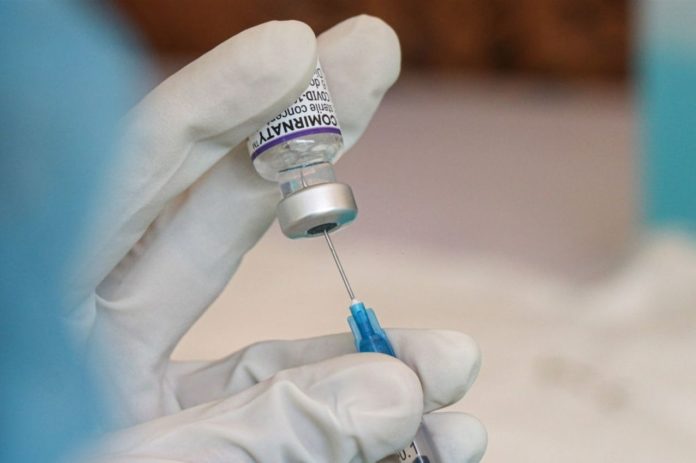Scientists have lately attempted to understand the circumstances that may have contributed to the current epidemics of coronavirus disease 2019 (COVID-19) in Israel. Their findings show that outbreaks are caused by the prevalence of the more contagious delta variant of SARS-CoV-2 and waning vaccination efficacy.
They recommend a third booster shot of the vaccine as a preventive intervention, as well as stringent execution of non-pharmaceutical control measures.
The delta strain (B.1.617.2) quickly became prevalent in several nations, including Israel, after its discovery in India in October 2020. The variant is known to have much higher infectivity and pathogenicity than previously circulating SARS-CoV-2 variants.
By the end of February 2021, Israel had vaccinated more than 60 percent of the population with the Pfizer/BioNTech-developed COVID-19 vaccine BNT162b2. With such high vaccine coverage, the country saw a dramatic reduction in infection and mortality rates at first.
Assuming that the country had surpassed the herd immunity threshold, health officials opted to eliminate non-pharmaceutical control measures, such as forced mask use. Despite this early achievement, a substantial increase in new infections and consequent mortality was recorded in Israel by August 2021, when the delta variety was prevalent throughout the country.
The current study looked into whether the prevalence of the delta variant was primarily responsible for the recent outbreaks in Israel.
The researchers examined the influence of vaccination on both confirmed COVID-19 cases and severe cases that needed hospitalization using a spatial-dynamic model of disease spreading. Furthermore, they calculated the current efficacy of the BNT162b2 vaccination.
They estimated the theoretical reproduction number for SARS-CoV-2 alpha and delta variants, which determines the frequency of interaction between sick and healthy persons that would have resulted in an infection in the absence of vaccinations. Unlike a virus’s fundamental reproduction rate, the potential reproduction number takes into account the success of non-pharmaceutical control measures.
The spatial-dynamic models were used by the scientists to examine two alternative situations. They examined the preponderance of the delta variant and no loss in vaccination efficacy over time in one model (delta model). In another model, they evaluated the alpha variant’s dominance and a time-dependent drop in vaccine efficacy (waning model).
The results of these models demonstrated that both fading vaccination efficacy and delta infectiousness might separately drive Israel past the herd immunity threshold. According to both models, decreased vaccine efficacy might result in 2000 confirmed COVID-19 infections each day. Similarly, a high prevalence of the delta variation may result in the discovery of 3500 instances every day.
Because older persons were emphasised in all vaccination campaigns, it is expected that their vaccine protection may wane. In line with this theory, the fading model projected a higher number of daily instances (250 cases) in those aged 60 and up than the delta model (150 cases). When these models were integrated, the number of cases climbed to 700, which corresponded to the number of cases observed in the real-world situation (716 cases).
Further investigation revealed that the percentage of cases among older persons was much lower than in the general population during the winter outbreaks. This could be due to elderly persons having greater vaccination rates. In recent outbreaks, however, a considerably higher percentage of infections were reported among older people, supporting the influence of declining vaccine efficacy.
Based on these findings, the authors hypothesised that countries that had only recently vaccinated a large proportion of their population could be able to efficiently manage delta outbreaks. Furthermore, they discovered that a greater rate of recent immunisation is connected with a lower risk of COVID-19 related mortality by analyzing the percentage of recent vaccine recipients and the number of COVID-19 related fatalities in 50 nations.
Future outbreaks can be avoided, according to the experts, by providing a third booster dose of the vaccine and applying non-pharmaceutical control methods (mask-wearing, physical distancing, etc.).
Image Credit: Getty
